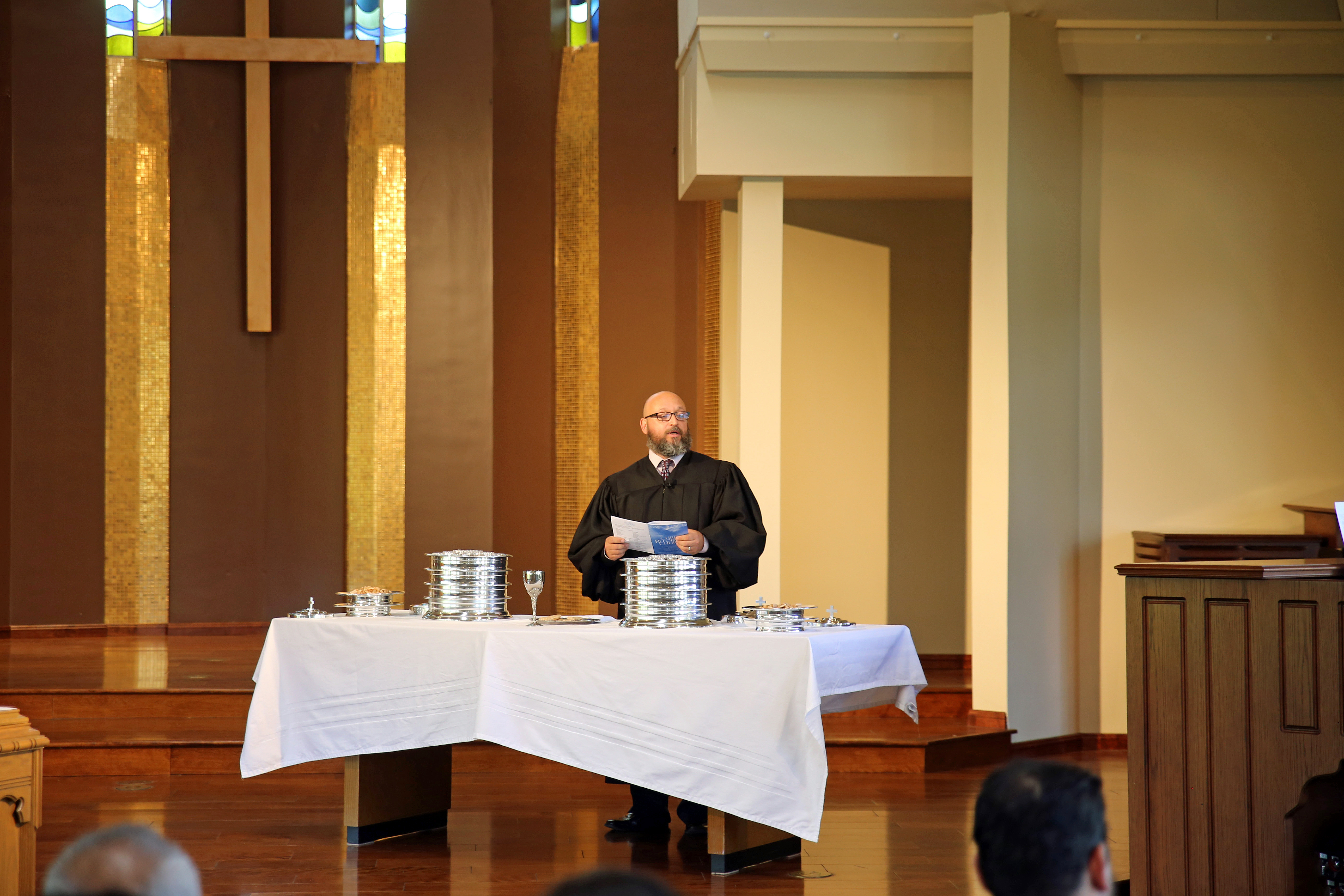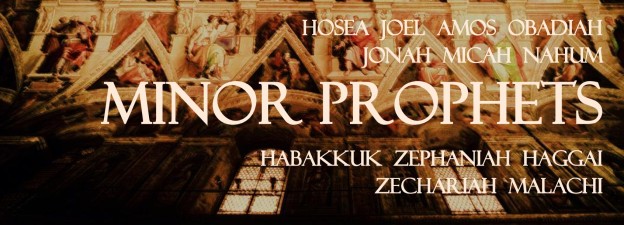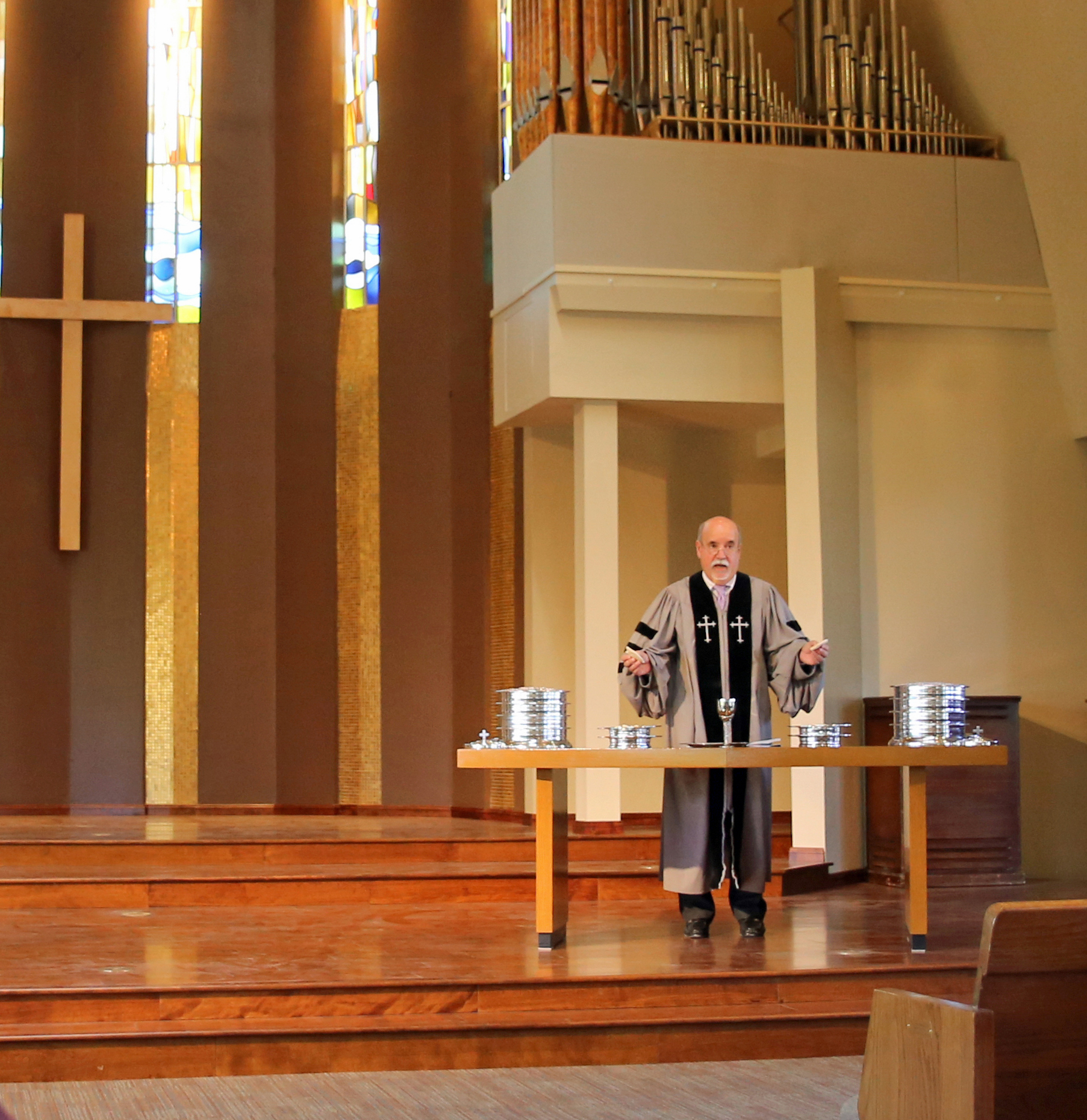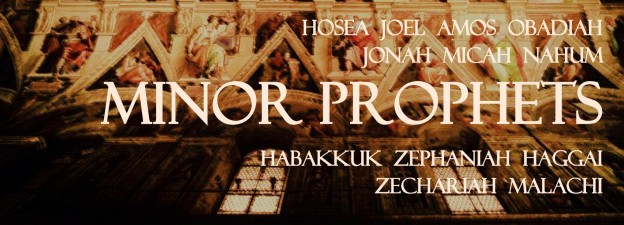"I Shall Restore the Fortunes of My People Israel" -- Amos 7:1-9:15
 Tuesday, April 23, 2019 at 01:28PM
Tuesday, April 23, 2019 at 01:28PM 
Sermons on the Minor Prophet: The Book of Amos (5)
About the year 760 B.C., YHWH sent the Prophet Amos to Israel (the Northern Kingdom). Amos’ mission was to announce that YHWH’s covenant lawsuit was being served upon his disobedient and unfaithful covenant-breaking people who had separated from Judah (the Southern Kingdom) in a bloody civil war about two hundred years previously. In the first six chapters of the Book of Amos, the prophet proclaimed YHWH’s solemn words to Israel in series of oracles of lament and warnings of impending judgment. Amos’ message–God’s judgment was coming upon Israel, soon, within a generation. Amos’ message is stark and jolting. But as we will discover in our text (vv. 11-15 of chapter 9), Amos’ prophecy does not conclude with an announcement of a final covenant curse. Instead, despite the immediate judgment to come upon Israel, Amos’ prophecy ends with YHWH’s gracious promise of future restoration of Israel, a restoration tied to a coming messianic age when God’s promise to renew his people extends beyond the borders of Israel to the ends of the earth.
We will wrap up our time in the Book of Amos–next time we will take up the Book of Jonah. After a bit of brief review, we will survey the five visions recorded by Amos (in chapters 7-9), before turning to the concluding words of covenant blessing (vv. 9-15 of chapter 9)–a somewhat remarkable and hopeful ending to a book which is characterized by oracles of judgment, woe, lament, warning, and threats of covenant curse.
Recall, that in the first two oracles recorded in his prophecy (chapters 1-2), Amos’ words are intended to shock Israel to attention–like a bucket of cold water to the face. Although the kings and priests of Israel foolishly expected God’s judgment be unleashed upon Israel’s pagan neighbors–thereby vindicating Israel as a break-away kingdom from Judah even in the midst of the nation’s current apostasy from YHWH’s covenant–the opposite was in fact the case. Yes, God’s judgment was coming upon the Gentile nations because of their persecution of God’s people. But God’s judgment was to fall on Israel first because, as Amos reminds Israel, judgment begins in the house of the Lord. For six hundred years, Israel continuously and willfully broke the terms of their covenant with YHWH. The warning that YHWH’s patience had run out should not come a surprise. That it did, demonstrates how far Israel has fallen.
In chapters 3-4, we saw that Amos was sent to Israel at a time of relative peace, economic prosperity, and what seemed to be religious devotion. But the reality was that the apparent peace, prosperity, and piety hid Israel’ self-righteous indifference to the things of the Lord. Within a generation (in 722 B.C.), Israel’s peace would come to a crashing halt–as the nation was soon to fall to the Assyrian empire from the North. Whatever economic prosperity the nation was experiencing in the days of Amos, came about because the rich (both the royal house and the land-owners) exploited the poor. YHWH sent material blessing upon this people–but it never “trickled down” to those in deepest need. During this time of prosperity, the royal house and estate owners acquired much property and fine luxury goods, but the people whose labor brought about such wealth were struggling to survive. Even worse, Amos reports, those exploited were enslaved (through debt) and even mocked by those whom they served.
As for the nation’s spiritual heath–things were no better, perhaps much worse. Sacrifices were being offered at the various religious shrines (Bethel, Gilgal), but by priests appointed by the king, not those who were Levites. As we saw in the oracle of woe in Amos 5:18-6:14, YHWH would not accept these sacrifices. He hated them. They did not turn aside YHWH’s righteous anger toward the people’s sin. In offering sacrifices in such an illegitimate way and for all the wrong reasons, the sacrifices only increased the people’s guilt. The worship of YHWH was conducted, but worship of Baal was not forbidden. The people were going through the rituals commanded of them with their hearts far from YHWH–perhaps even inclined to the Canaanite gods. Such religious hypocrisy increased the people’s guilt. YHWH ceased listening to their songs and ceremonies.
To read the rest of this sermon: Click Here










